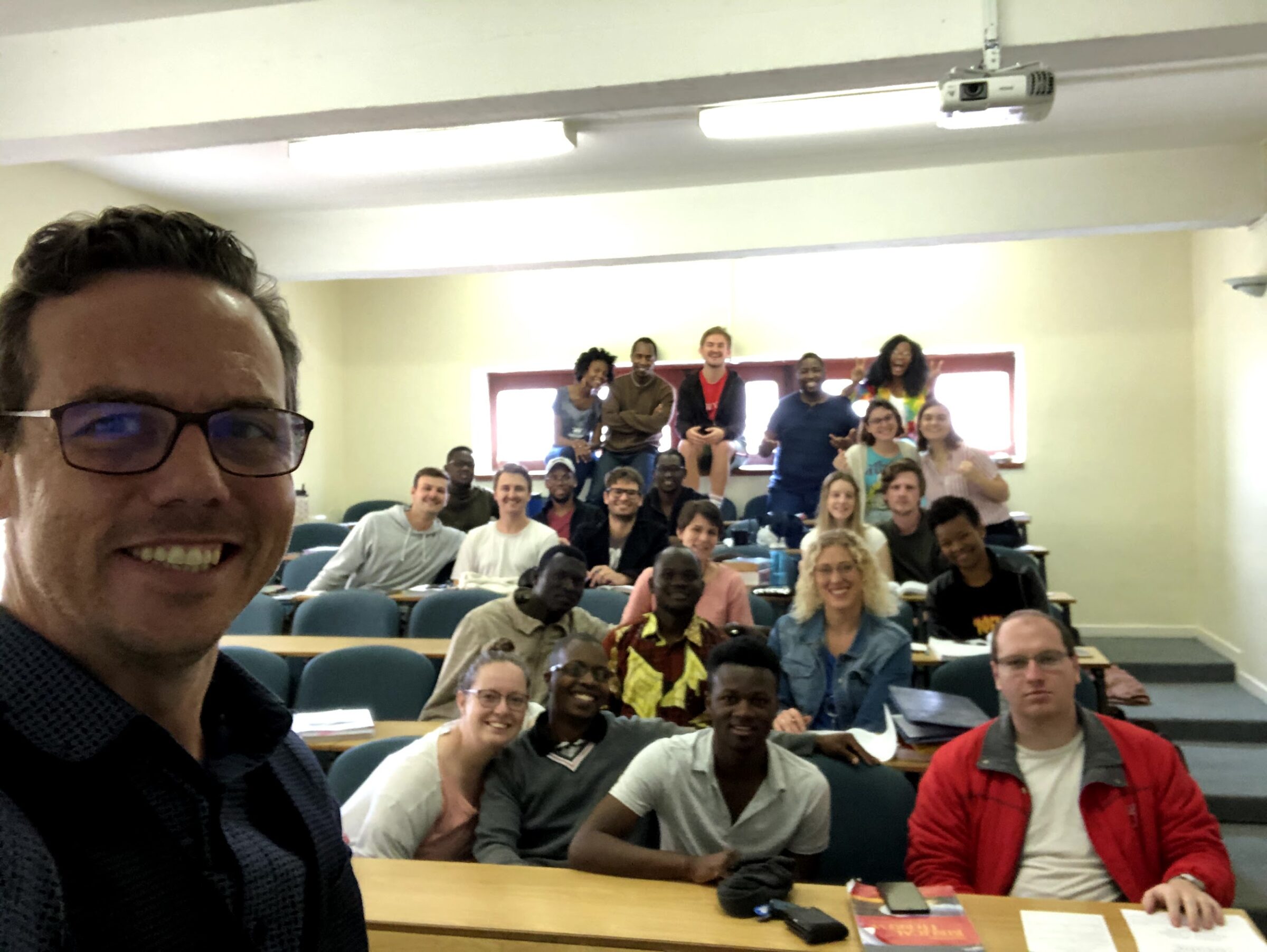Leading with humility
CMS missionary Nathan Lovell lectures in theology at George Whitefield College in South Africa. Checkpoint asked him to explain the challenges of approaching this position of authority in Christian humility.
“Can you please stop ragging on John Piper now?” ‘Ragging’ means constantly criticising someone, and my student sounded somewhat exasperated. It wasn’t true; I wasn’t ragging on John Piper. Well… I was, sort of.
The theological college where I lecture is a multi-cultural place. At any one time the student body in my college has over fifteen different nationalities from at least two, sometimes more, continents. It’s also full-time residential, which means that as everyone lives together on campus, we eat breakfast together, and overhear each other’s arguments. At the start of every year there’s an awkward period of adjustment, where everyone figures out that ‘how we do things around here’ doesn’t look like ‘how we did things at home’. Some years, the cultural issues seem to be endless.
Challenging authority
One of those ‘things we do around here’ is challenge authority, so we can think for ourselves. This was why I was ‘ragging on John Piper’ as my student so eloquently put it. Piper is a popular author here, but I wasn’t trying to take him down a notch or two. I was trying to show the students something more fundamental: that it’s OK to question.
This student is from a place where challenging authority doesn’t happen, so I did it for him. Where he is from, school is done by rote-learning from the teacher. Church meant listening to what the minister told you to do. The minister listened to his bishop. As a student from that culture, it was deeply, deeply anti-intuitive for him to have the sort of conversation I wanted him to have.
This observation about authority in other cultures is common enough. You’ve probably heard similar if you’ve read enough Checkpoint magazines. We need to take this observation and use it to help us in thinking about how best to teach theology across cultures.
The problem of pride
But here I want to flip it around and think about the teacher, rather than the student. Because I don’t want to reflect on authority, but on the challenge of pride.
People can become extraordinarily proud when everyone just listens to and accepts everything they say. Think about how tempting it might be for a young pastor, freshly graduated, who suddenly discovers that everyone hangs on their every opinion. Pride is a temptation for me too. I teach in a theological college, and every young pastor has to get my approval, or they don’t graduate.
“I want to think about pride, especially the pride that so often comes with authority.”
I don’t think anyone’s culture deals with pride very well. Everyone agrees humility is a virtue but, even so, it seems a rare commodity. In Africa, to be perceived as a leader you have to come across as one—charismatic, larger than life, authoritative. You know the type.
Around here, people are only leadership material if they already have power and if they look like they know what to do with it. This can make pride, not humility, come across as virtuous. This can also be true in the church. People are seen as leadership material when others are already following them.
The authority of the Word
It is vital that my students know it is ok to question authority (including mine) as they study at GWC.
One day they will be running a ministry, and they will have to be able to stand on the authority of the Word, not on their pride or gifts. They will have to be ready to receive correction from time to time too.
It is sobering for me to help prepare my students to stand on God’s word alone in their future positions of authority. Honestly, this gets harder year by year. Every January, the new crop of students seems somehow younger and naiver than the last. And every January I’m one year more experienced than I was the previous year. I feel the gap widening.
But humility has to be modelled. If my students look up to me at all, I hope they see someone who works hard to know the Bible, who trusts what God says, and who is humble enough to change his mind when he is wrong. Anything else would be a tragedy.
Ultimately, it’s not about me at all – my students and I are all sitting on the same side of the classroom. That’s why I encourage students to challenge human authorities and (under Christ) think for themselves. We’re all disciples together, and we all have the same tutor. It’s Jesus’ church, and his Spirit who teaches us all. And so, as we follow Jesus Christ—who thought even equality with God wasn’t something to boast in—we seek to be like him. When God became a servant, he showed us how to use real authority. In the end, that’s what keeps us all humble.
GO
Lecturing in a theological college to students requires both academic qualifications and humility of character. If you know someone like this, encourage them to contact their CMS branch about opportunities to serve.












































































































